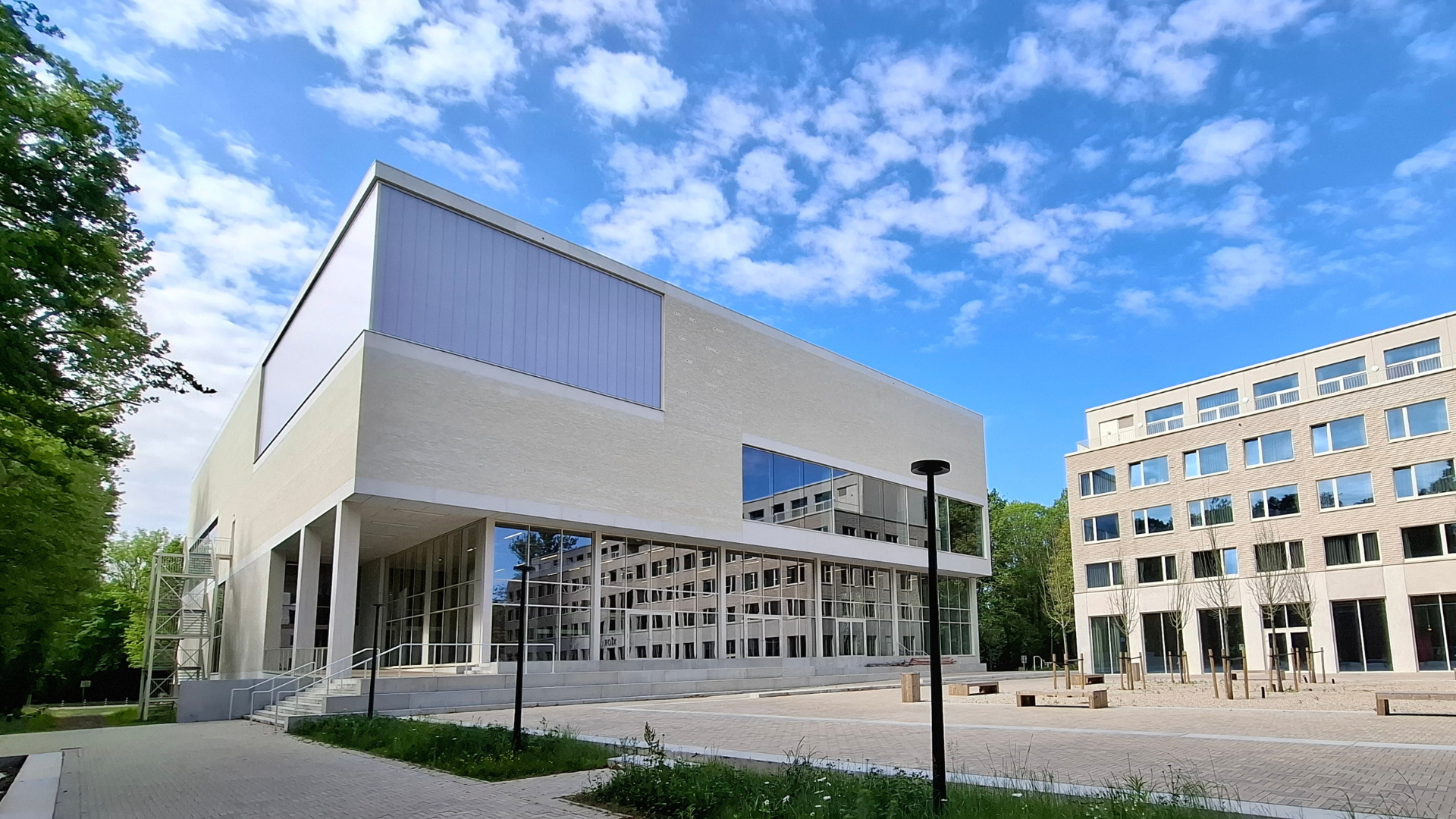Campus Drie Eiken has recently gained a building, and what a building it is: the architecturally striking Building P houses a spacious food hall, two sports halls, and a state-of-the-art training hall for physiotherapy students. By all accounts, this place is set to become the new vibrant heart of the campus. A brief explanation from the three key figures behind the project.
Sports infrastructure for physiotherapy students
Professor Nick Gebruers, department chair, Rehabilitation Sciences and Physiotherapy: ‘I’m very happy with this result. Together with the two residential blocks and the square, it now makes for a welcoming environment. It will undoubtedly be a vibrant place all year round. After all, except for a few weeks of closure, the food hall and sports facilities will be open continuously. This is also nice for the 1,500 staff members who continue to work here through the class-free periods.
The seeds of this project were sown back in 2019. Professor Eric van Breda of Rehabilitation Sciences and Physiotherapy, now retired, drew up a master plan for Campus Drie Eiken together with the board of the Faculty of Medicine and Health Sciences. Their main priorities were more restaurants, housing and sports facilities. The university launched a competition, from which property developer Life emerged as the winner.’
Training hall of 900 square metres
‘The new sports facilities are a major step forward, especially for physiotherapy students. After all, exercise and sport play a central role in their study programme. Students need to experience first-hand what physical activity means for healthy individuals as well as for patients and people undergoing rehabilitation. Previously, they had to travel to Campus Middelheim for those classes, which made timetabling a real puzzle. It was common for theory and practice to be taught at different locations. That is now a thing of the past.
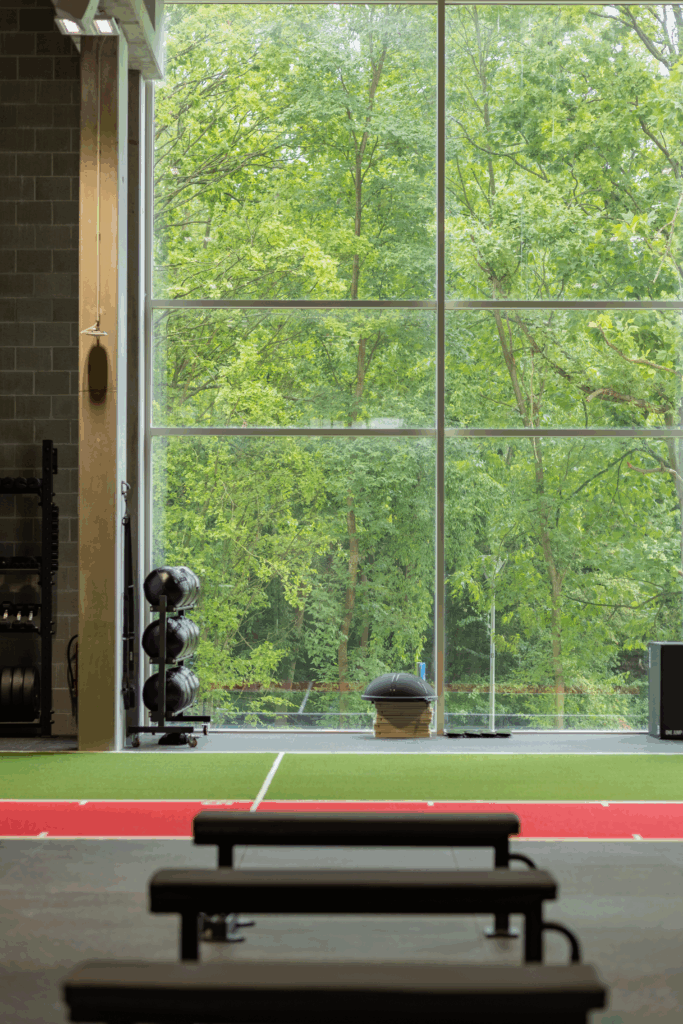
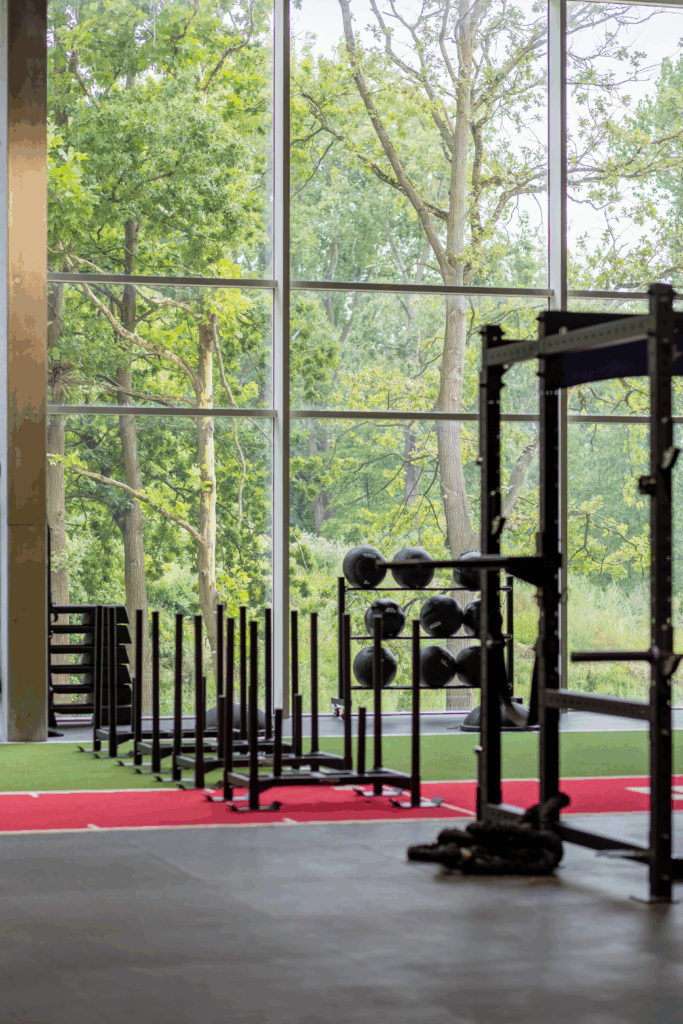
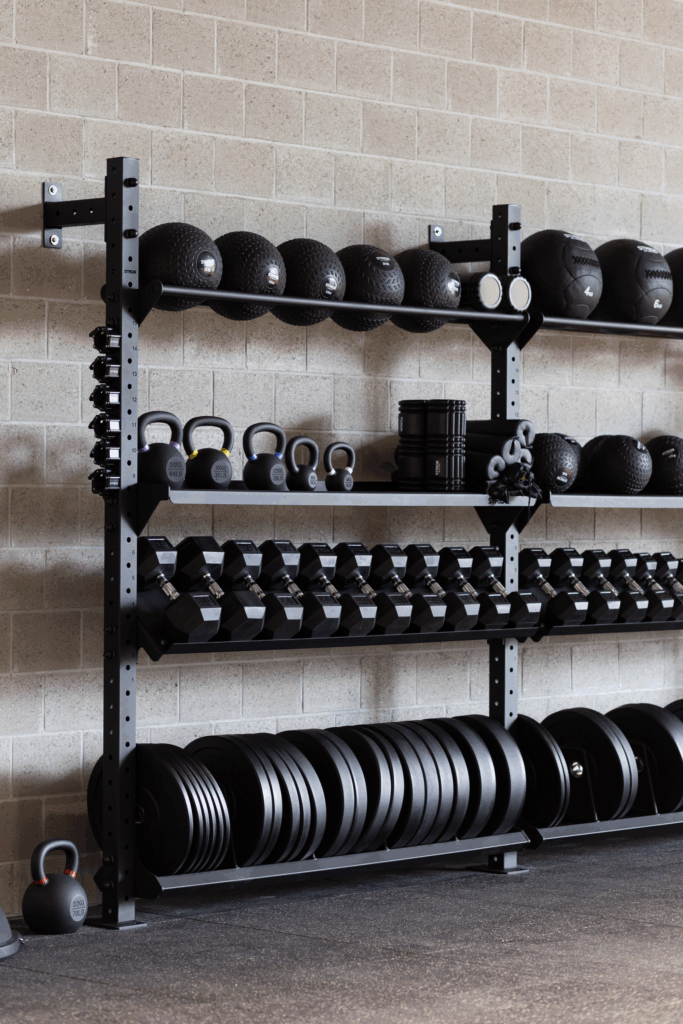
In addition to the two sports halls, which our students will make frequent use of, there is also a training hall. This athletic training hall, as it’s officially labelled, is unique in Flanders. Not only because of its size – it covers 900 square metres – but also because it’s fully equipped with the most advanced equipment. This enables students to develop their skills in strength and movement therapy. Treatment and laboratory facilities have also been included, creating opportunities for scientific projects. After all, many colleagues are conducting research into the impact of training programmes on patient recovery.’
Prof. Nick Gebruers: ‘The training hall is unique in Flanders not only because it is about 900 square meters in size, but also because it is fully equipped with advanced equipment.’
Full of life
Catherine Ongenae, domain coordinator of nutrition and student affairs: ‘With this new complex, our aim is to create a campus where student life can truly flourish. The food hall plays a key role in this. Alongside komida, we sought out external chains known for quality food that appeals to students and for their evening opening hours. This led us to Bavet, known for its pasta dishes, and Oats Day Long, whose branch here has been renamed Café Unief. The latter serves not only drinks but also breakfast, lunch and snacks, with a strong focus on a healthy diet.
When it comes to komida, we’re sticking to the familiar concept. There, only lunch is served, with a gentle nudge towards healthier choices. In this way, we also cater to our staff, many of whom value a healthy lifestyle. Incidentally, we’ll soon start serving balanced meals specifically designed for after sporting activities. These will be prepared by our new dietitian, who specialises in sports nutrition. Another convenience of the food hall is that orders can be placed remotely. Plus, there will be a digital ordering kiosk and vending machines with takeaway meals.’


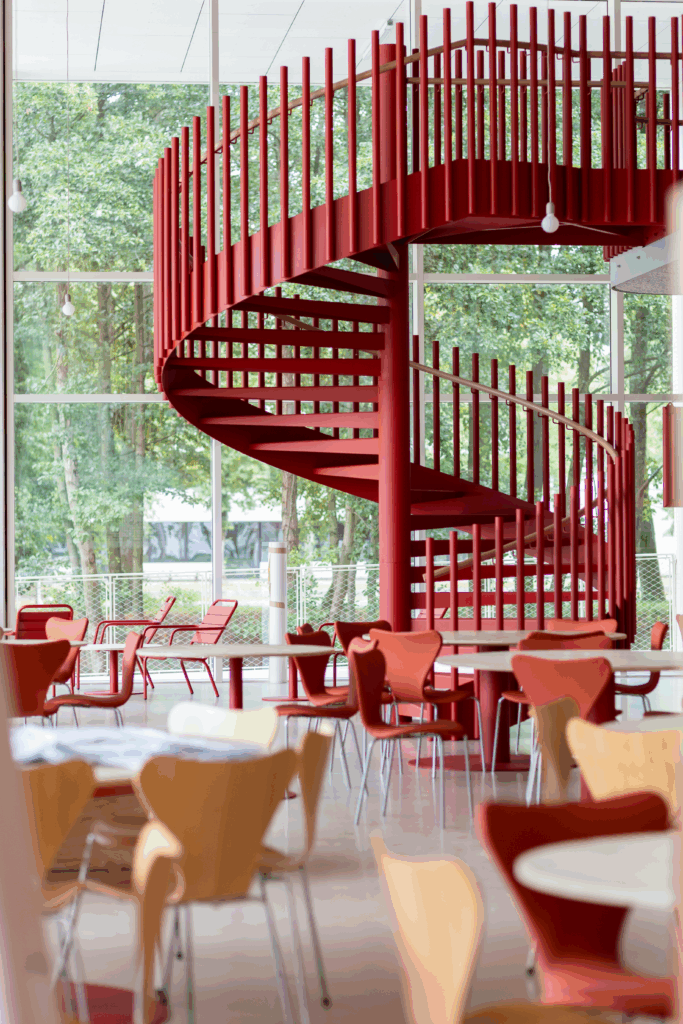
Sportsticker also for staff
‘When it comes to sport, we offer a wide range of activities, whether individually or in groups – from yoga and Pilates to basketball and badminton. We also hope to encourage our staff to take part: just like students, they can benefit from the very affordable Sportsticker scheme. For as little as €35 a year, staff members can enjoy a full year of sporting activities, and the Sportsticker entitles you to quite big discounts at certain sports clubs.’
Catherine Ongenae: ‘The food hall will also be open in the evenings. That brings extra life to the campus.’
‘We expect this new setting to create an entirely different experience. In the past, the campus would empty out in the evenings. Now, with the residential blocks and a café that stays open at night, the place will be full of life around the clock. Campaigns are also planned to draw students’ attention to all that’s on offer.’
Sportspeople welcome all week
Luc De Backer, project coordinator: ‘At our Student Services Department, we attach great importance to the student life experience. With this project – in line with trends at international universities – we’ve truly been able to deliver on that. Staff and students alike can come here to exercise, eat or drink, work or study. The food hall is open on weekdays from 8 a.m. to 10.30 p.m., and at weekends from 9 a.m. to 1 p.m. But even on Saturday and Sunday afternoons the place will not be deserted, as people will still be coming in to exercise – including local sports clubs. We’ve already made arrangements with the City of Antwerp, and some clubs will be training here two to three times a week. So this is a real advantage, given the shortage of sports halls in the Antwerp area.
Since the campus already has a komida with an extensive range, we opted for a somewhat more limited menu at this location. The focus is on popular dishes that customers can in some cases put together themselves – for example, a tasty salad with toppings of their choice.’
Luc De Backer: ‘A project like this doesn’t come along every year. The first reactions are positive, but the real test will come at the beginning of the academic year.’
Focus on sustainability
‘We’re very pleased with the architects’ design; the building looks great. We’ve also paid close attention to sustainability. For example, the tables in the food hall come from a building site, while the chairs are second-hand – although you’d never guess that after their makeover.’
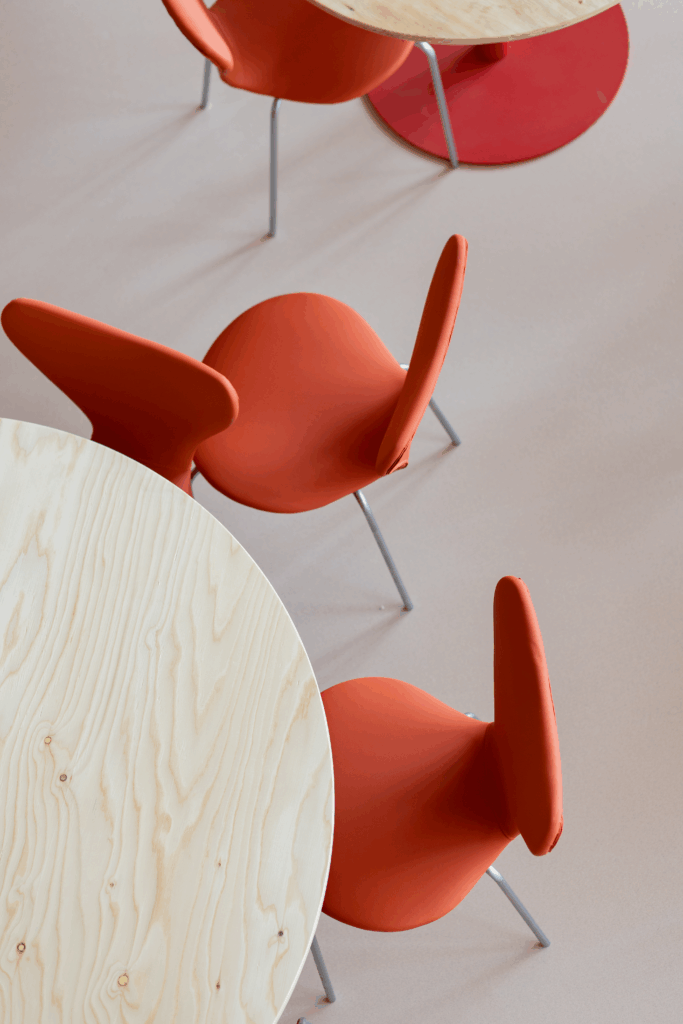
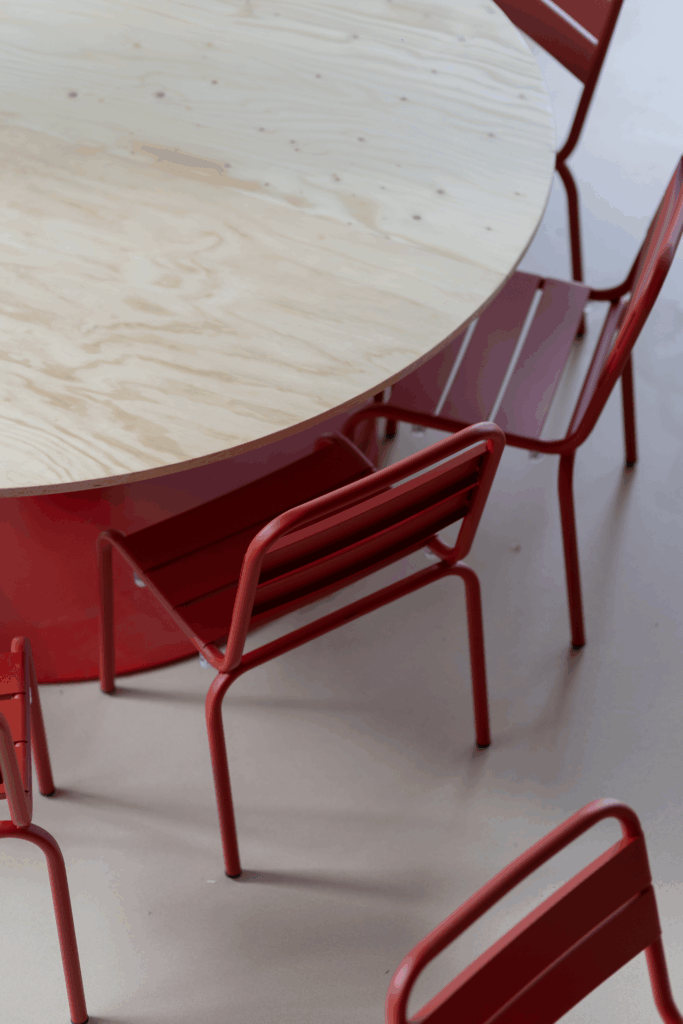
‘A large-scale project such as this doesn’t come along every year. We had to redraw the plans several times, and in the end the building opened a year later than originally planned. Having the opening as early as mid-August turned out to be a real advantage, as it gave us the chance to start up calmly. The real test will come with the beginning of the academic year. But initial responses have been positive. People appreciate the building’s open, light character and enjoy coming here in the mornings for a quiet coffee.’


